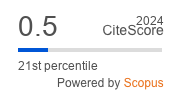Elective surgery: operational forecast and decision-making
Abstract
The article is devoted to operational forecasting and decision-making features in elective surgery. The paper presents the original formula predictive of death based on the study of operational outcomes described five types of predictions. It is shown that only a combination of normative and descriptive hiking allows you to build evidence based decision making. Only the application of the scientific approach will allow the person making the decision, more objectively assess a problem situation, to take into account the available resources and constraints to formulate and analyze solutions, choose from them acceptable. In the article the problem of operational forecasting and rational theory of decision making in general and oncology considered and developed as an integrated, interdisciplinary, involving philosophy, mathematics, statistics and psychology.
About the Author
N. A. KuznetsovRussian Federation
Nikolaj Anatolievich Kuznetsov, PhD, associate prof. of the chair of faculty surgery № 1 of the therapeutic faculty
6–1 B. Pirogovskaya str., Moscow, 119992
8 (499) 248–75–66
References
1. Ruzavin G.I. Epistemological problems of decision-making in socio-economic activities // Vopr. fi losofi i. 2001; 13: 81–100.
2. Diev V.S. Rational decision: Approaches and Challenges // Language and social cognition. M. Centr. philosoph. (metodol.) seminars at the Presidium of the USSR Academy of Sciences. 1990: 123–136.
3. Al’gin A.P. Risk and its role in public life. M. 1989. 187 p.
4. Kuznetsov N.A. Risk situation and the urgent need of surgery (lecture) // Khirurgiya. 1994; 4: 53–55.
5. Humber J.M., Almeder R.F. Quantitative risk assessment and the notion of acceptable risk // Quantitative Risk Assessment. Biomedical Ethics Reviews, 1986 / Ed. by James M. Humber and Robert F. Almeder.: Georgia State University, Atlanta, Georgia. Humana Press. Clifton, New Jersey. 278 p.
6. Neumann von J., Morgenstern O. Theory of games and economic behavior. M. Nauka. 1970. 708 p.
7. Kuznetsov N.A. Forecasting of the results of surgeries // Surgical diseases: a guide to the patient survey. M. Prakticheskaya medicina. 2014. (in print)
8. Karpov A.V. Methodological foundations of psychology of decision-making. Yaroslavl’. 1999. 232 p.
9. Asaul A.N., Knyaz’ I.P., Karataeva Yu.V. Theory and practice of decision-making for organizations to overcome the crisis. St. Petersburg. ≪IPEV≫. 2007. 224 p.
10. Osipova N.A., Vetsheva M.S., Danilchenko T.A., Evdokimov E.A. Operational risk, general anesthesia and intensive therapy in cancer patients with limited functional reserve. Guidelines. M. 1994. 23 p.
11. Kant I. Works. M. 1966. Vol. 3. 674 p.
12. Kuznetsov N.A., Golubeva-Monatkina N.I. Classifi cation of criteria for operational risk // Khirurgiya. 1990; 8: 106–109.
13. Kuznetsov N.A., Golubeva-Monatkina N.I. Operational risk: some problems and methods of analysis // Khirurgiya. 1991; 11: 93–99.
14. Shevchenko Yu.L., Kuznetsov N.A., Anisimova O.V., Talberg P.I. Prediction of postoperative complications in elective surgery // Khirurgiya. 2003; 10: 6–13.
15. Betyaev S.K. Prognostics: the fi rst steps of science // Vopr. filosofi i. 2003; 4: 3–11.
16. Larichev O.I. Objective and subjective decision models. M. Mir. 1987. 144 p.
17. Simon H. Science of artifi cial. M. 1972. 153 p.
18. Lomov B.F. Mathematics and psychology in the study of decision-making processes // Normative and descriptive models of decision-making. M. Nauka. 1981: 5–21.
19. Waterman R. Update factor. M. Progress. 1988. 368 p.






































